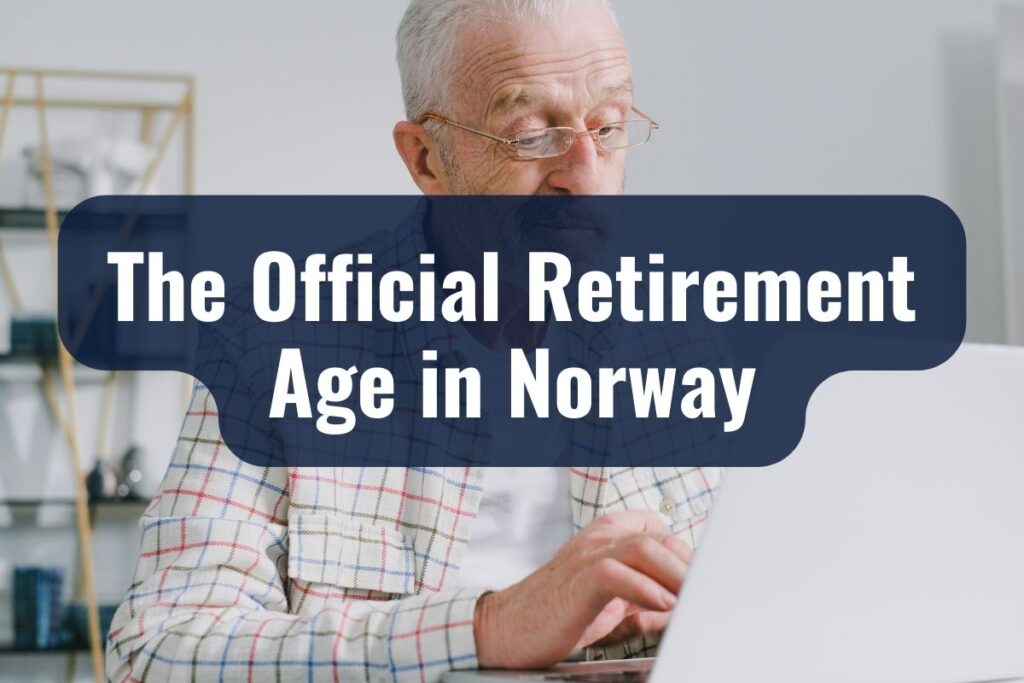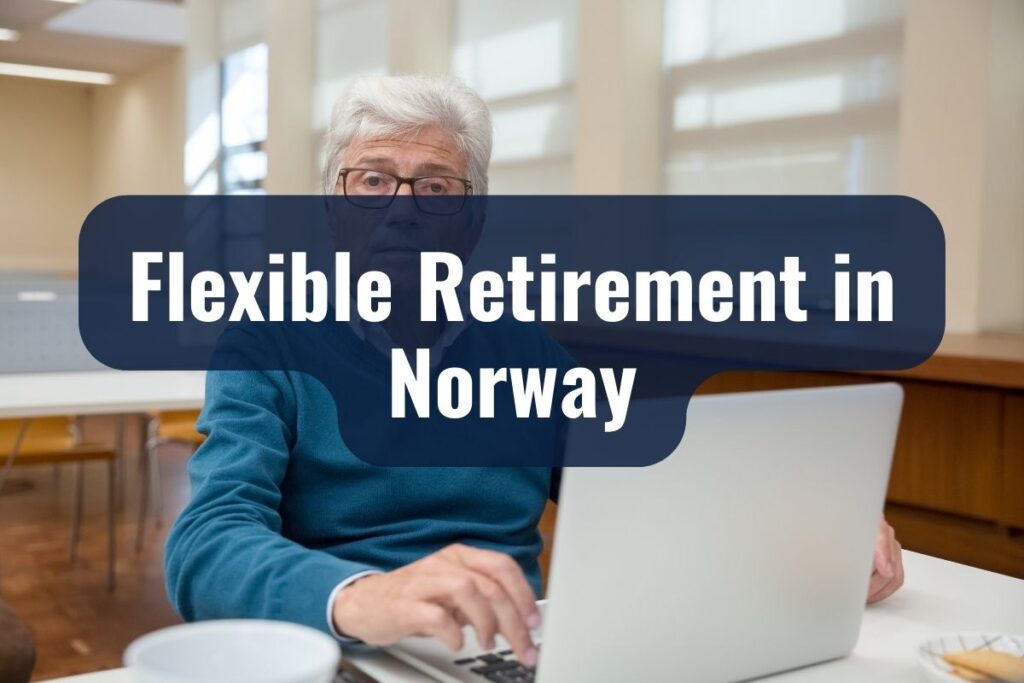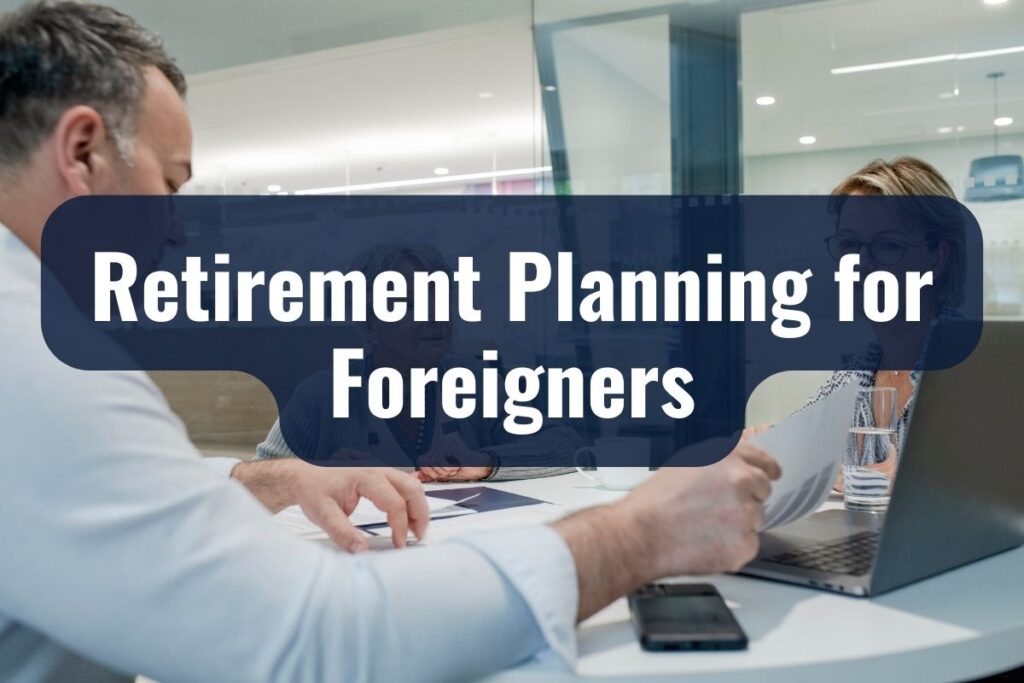As an expatriate or foreign professional in Norway, understanding the intricacies of the Norwegian retirement system is essential, especially if one intends to spend a considerable part of their career or later years in the country.
While Norway is famed for its quality of life and strong social security provisions, it’s equally vital for foreigners to grasp the official age of retirement, its variations, and the associated benefits.
This article delves into the depths of the retirement age in Norway, providing a comprehensive overview tailored to those who might not have access to resources in Norwegian. Let’s embark on this enlightening journey together.
Key Takeaways
- Norway offers a flexible retirement system, with early benefits available from age 62.
- The full retirement age for most Norwegians is 67, ensuring complete pension benefits.
- Certain professions, due to their demands, have distinct retirement age variations.
- The retirement benefits encompass income pensions, guarantee pensions, and supplementary benefits.
- Foreigners in Norway must consider residency requirements, previous pension plans, and future mobility when planning for retirement.
History and Basis of Retirement in Norway
The journey of retirement policies in Norway is a reflection of its commitment to social welfare and the well-being of its inhabitants. Over the years, Norway has built a solid foundation for ensuring that its citizens and residents can retire with dignity, financial stability, and a sense of societal belonging.
The Genesis of Retirement Regulations
The idea of retirement, as we understand it today, started to take shape in Norway during the late 19th and early 20th centuries. As industrialization spread across Europe, there was an increasing realization of the need to care for the aging workforce. Norway, being no exception to this trend, initiated dialogues and policies focusing on the elderly and their well-being.
The early 20th century saw the introduction of the first set of age-related pension regulations. These regulations recognized the physical limitations that age could impose on a worker and the ethical responsibility of society to ensure a comfortable life for its elderly citizens.
The National Insurance Scheme: A Turning Point
One of the most pivotal moments in the evolution of retirement in Norway was the introduction of the National Insurance Scheme (Folketrygden) in 1967. This scheme was revolutionary in its vision and execution. It aimed to provide a universal social security net for all Norwegians, irrespective of their income or social status.
Under the National Insurance Scheme, every resident of Norway is entitled to retirement benefits. The scheme operates on a combination of payroll taxes from current workers and government subsidies. The accumulated funds are then distributed as pensions to retirees, ensuring a continuous flow of income during their golden years.
The National Insurance Scheme’s advent not only reinforced Norway’s commitment to its aging population but also established a framework that many other nations would come to admire and emulate. The system’s universality and inclusivity have been its hallmarks, making retirement in Norway a period of rest, reflection, and reconnection, rather than financial uncertainty.
The Official Retirement Age in Norway

When planning for retirement, one of the most crucial pieces of information is understanding at what age you’re eligible to start receiving pension benefits. Norway has designed its retirement system with flexibility in mind, allowing individuals to choose when they retire to a certain extent, but there are key ages to be aware of.
Early Pension Benefits Age
In Norway, the concept of early retirement is embedded within the National Insurance Scheme. This flexibility ensures that if an individual wishes to, or due to certain circumstances needs to retire before the standard retirement age, they can do so.
As of recent regulations, individuals are eligible to start drawing their pension benefits as early as age 62. However, it’s essential to understand that choosing to retire early may lead to reduced monthly pension payments, as the pension amount is adjusted based on the expected longer duration of the payout.
Standard Full Retirement Age
For those aiming for the full retirement benefits without any reductions, the age to keep in mind is 67. This is the age at which Norwegians can start drawing their full pension benefits, assuming they have accumulated the required number of years of pensionable income. It’s the age that’s often referenced when discussing “standard” retirement in Norway.
While age 67 is the standard for full pension benefits, it’s worth noting that individuals aren’t necessarily required to stop working at this age. Many choose to continue their professional pursuits, either due to personal interest, financial reasons, or a combination of both. In such cases, they can opt to defer drawing their pensions, which can lead to increased pension benefits when they eventually decide to retire.
Related: Pension in Norway: A Complete Guide for Expats
Variations Based on Profession
While the foundational retirement ages of 62 for early retirement and 67 for full benefits are benchmarks within the Norwegian system, there are certain professions that, due to their unique demands or historical agreements, have variations in their retirement age regulations. Recognizing the distinct challenges and requirements of different careers, Norway has integrated specific provisions within its retirement framework to address these nuances.
Professions with Earlier Retirement Ages
Certain professions in Norway come with the opportunity or sometimes even the requirement to retire earlier than the general population. These typically include jobs that have physically demanding roles or have historically been deemed to warrant an earlier retirement.
Pilots: Due to the stresses and unique demands of the aviation industry, pilots in Norway have traditionally had an earlier retirement age, often around 60. This is in consideration of both the job’s physical demands and the profession’s safety implications.
Firefighters: Given the physical demands and the risk associated with firefighting, firefighters often have provisions to retire earlier, typically in their late 50s or early 60s.
Police Officers: Like firefighters, police officers face a physically demanding and at times hazardous profession. As a result, there are specific retirement provisions in place, allowing for earlier retirement in comparison to many other professions.
Professions with Extended Working Years
On the flip side, certain professions or roles, particularly those in academic or advisory capacities, might see individuals working beyond the standard retirement age of 67. This is often driven more by personal choice and the nature of the profession than specific regulatory provisions. For instance:
Academics: Professors or researchers, fueled by passion for their field and the less physically demanding nature of their job, might choose to continue their professional journey well beyond the age of 67.
Consultants and Advisors: With experience often translating directly to value in advisory roles, many consultants might extend their careers, providing their expertise to industries or individuals even after reaching the standard retirement age.
It’s crucial for foreigners working in Norway to be aware of these variations. Depending on one’s profession, the path to retirement could look different, and understanding these nuances ensures better preparation and planning for the future.
Flexible Retirement in Norway

One of the standout features of the Norwegian retirement system is its inherent flexibility, accommodating the diverse needs and aspirations of its workforce. Recognizing that a one-size-fits-all approach might not always be in the best interests of its citizens, Norway has incorporated provisions that allow individuals to tailor their retirement path according to their unique circumstances and desires.
The Spectrum of Retirement Choices
In Norway, retirement is not a rigid milestone dictated solely by age. Instead, it’s a spectrum of choices that takes into consideration the individual’s financial preparedness, health, personal aspirations, and other life circumstances.
Early Retirement
As previously mentioned, starting from age 62, individuals have the option to tap into their pension benefits. This provides an avenue for those who, due to health reasons, personal preferences, or other circumstances, wish to wind down their professional commitments earlier. However, it’s vital to note that choosing this route typically means a reduction in monthly pension payments. This reduction accounts for the longer duration over which the pension will be disbursed.
Deferred Retirement
On the other end of the spectrum, for those who are keen on continuing their professional journey beyond age 67, deferring pension benefits is an option. Whether driven by passion, financial objectives, or a combination of both, this choice allows individuals to increase their eventual pension benefits. For every year one defers post the age of 67, there’s a percentage increase in the pension amount, rewarding the decision to work longer.
Balancing Work and Retirement
Another facet of Norway’s flexible retirement system is the possibility to combine work and pension. This means that even if someone starts drawing their pension benefits, they aren’t restricted from continuing to work and earn an income. This combination can be especially beneficial for those who might want to transition to part-time roles or undertake consultancy work in their field, blending the benefits of retirement with the satisfaction of professional engagement.
Benefits Upon Retirement
The foundation of Norway’s retirement system isn’t just about deciding when to retire; it’s also about ensuring that once individuals reach this milestone, they’re supported with a range of benefits that guarantee financial security and a comfortable quality of life. These benefits, grounded in the principles of the National Insurance Scheme, are a testament to Norway’s commitment to its aging population.
National Insurance Scheme Pension Benefits
At the core of the retirement benefits in Norway is the pension from the National Insurance Scheme. This pension is designed to be a safety net, ensuring every retiree has a basic level of income.
Income Pension
This is the primary component of the retirement benefits, calculated based on the years one has worked and the income earned during those years. The more years of pensionable income and the higher the income, the greater the benefits. It’s designed to reflect and reward an individual’s contribution to the workforce over the years.
Guarantee Pension
For those who might not have accumulated sufficient pensionable income or have had lower earnings, the Guarantee Pension comes into play. It’s a foundational benefit ensuring that every retiree receives a minimum pension amount, safeguarding against potential financial hardships.
Supplementary Benefits
In cases where retirees face additional expenses due to illness or disability, supplementary benefits can be provided. These are tailored to individual circumstances and ensure that every retiree’s specific needs are addressed.
Additional Provisions and Benefits
Beyond the foundational pension benefits, there are other provisions in place to further support retirees:
Housing Benefits for Pensioners
Recognizing the importance of a stable living environment, housing benefits are available for pensioners with low income. This ensures that even those with limited financial means can maintain a dignified living standard.
Tax Concessions
Retirees in Norway can benefit from certain tax concessions, easing their financial burdens. This includes potential deductions for specific age-related expenses.
Healthcare and Social Services
A robust healthcare system supports retirees, with provisions in place for both regular medical needs and specialized care. Additionally, various social services, from recreational activities to counseling, are available, emphasizing holistic well-being.
Retirement Planning for Foreigners

While the Norwegian retirement system is comprehensive and geared towards the well-being of its retirees, it’s particularly essential for foreigners to navigate this landscape with added awareness. Differentiating factors like duration of stay, previous pension schemes, and future plans can all influence how one should approach retirement planning in Norway.
Understanding Residency Requirements
One of the fundamental aspects that foreigners need to be conscious of is the residency requirement. While the National Insurance Scheme is universal, pension benefits are often influenced by the duration of one’s residency in Norway.
| Aspect | Details |
| Minimum Residency | At least three years in Norway after age 16 to qualify for the basic Guarantee Pension. |
| Full Pension Benefits | 40 years of residency after age 16 for complete pension benefits; prorated for shorter durations. |
| Export of Pension | Pensions can be exported to most countries, with specifics varying based on bilateral agreements. |
Minimum Residency
To qualify for the basic Guarantee Pension, a foreigner needs to have resided in Norway for at least three years after the age of 16.
Full Pension Benefits
For the complete range of pension benefits, a residency of 40 years after the age of 16 is generally required. For those with shorter durations, the pension amount is often prorated based on the number of years of residency.
Coordinating with Previous Pension Plans
Many foreigners in Norway might have accumulated pension rights in their home countries or other nations where they’ve previously worked. It’s vital to coordinate these rights with the Norwegian system.
Bi-lateral Agreements
Norway has agreements with several countries to ensure that pension rights from multiple nations are recognized and coordinated. This means that years worked abroad can sometimes be counted towards the Norwegian pension system.
Private Pensions
If you have private pension plans from previous employments abroad, it’s crucial to understand how these can be integrated or coordinated with the benefits in Norway. Seeking advice from a financial planner familiar with international pension schemes can be invaluable in this context.
Future Plans and Mobility
Considering the possibility of relocating after retirement is another critical aspect for foreigners.
Export of Pension
If you’re planning to move out of Norway after retirement, it’s essential to know that the pension from the National Insurance Scheme can be exported to most countries. However, the specifics might vary based on bilateral agreements and the chosen destination.
Impact on Benefits
Relocating might also influence supplementary benefits, housing benefits, or specific tax concessions available in Norway. A thorough evaluation of post-retirement plans can ensure there are no unexpected financial surprises.


